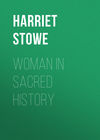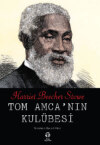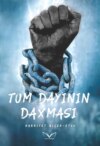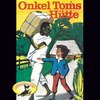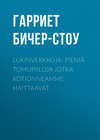Kitabı oku: «Woman in Sacred History», sayfa 4
To the last of the history of Jacob, we see the same man, – careful, patient, faithful, somewhat despondent, wrapped up in family ties and cares, and needing at every step to lean on a superior power. And the Father on whom he seeks to lean is never wanting to him, as he will never be to any of us, however weak, or faulty, or blind. As the caravan nears home, news is brought that Esau, with an army of horsemen, is galloping to meet him. Then says the record: "Jacob was greatly afraid and distressed: and Jacob said, O God of my father Abraham, the God of my father Isaac, the Lord which saidst unto me, Return unto thy country and to thy kindred, and I will deal well with thee: I am not worthy of the least of all the mercies and of all the truth which thou hast showed unto thy servant: for with my staff I passed over this Jordan; and now I am become two bands. Deliver me, I pray thee, from the hand of my brother, from the hand of Esau; for I fear him, lest he will come and smite me, and the mother with the children. And thou saidst, I will surely do thee good, and make thy seed as the sand of the sea, which cannot be numbered for multitude." The prayer is not in vain. That night a mysterious stranger meets Jacob in the twilight shadows of morning. He seeks to detain him; but, as afterwards, when the disciples met an unknown Friend on the way to Emmaus, he made as though he would go farther. So now this stranger struggles in the embrace of the patriarch. Who, then, is this? – is it the Divine One? The thought thrills through the soul as Jacob strives to detain him. There is something wildly poetic in the legend. "And he said, Let me go, for the day breaketh. And he said, I will not let thee go, except thou bless me. And he said unto him, What is thy name? And he said, Jacob. And he said, Thy name shall be called no more Jacob, but Israel: for as a prince hast thou power with God and with men, and hast prevailed. And Jacob asked him: Tell me, I pray thee, thy name. And he said, Wherefore dost thou ask after my name? And he blessed him there. And Jacob called the name of the place Peniel, for he said, I have seen God face to face, and my life is preserved." God's love to man, the power of man's weakness and sorrow over the Father-heart, were never more beautifully shown than in this sacred idyl. The God of Abraham, Isaac, and Jacob; the God of the weak, the sinful, the despondent, the defenceless; the helper of the helpless, – He is the God of this sacred story; and so long as man is erring, and consciously frail, so long as he needs an ever-present and ever-loving Friend and Helper, so long will this story of Jacob be dear to the human heart.
WOMEN OF THE NATIONAL PERIOD
MIRIAM, SISTER OF MOSES
I t has been remarked by Montalembert that almost all the great leading men in history have been intimately associated with superior women. If we look on Moses in a merely human light, and judge him by what he accomplished, as we do other historic characters, he is in certain respects the greatest man of antiquity. The works of the legislators, kings, and conquerors of ancient history were perishable. Their cities have crumbled, their governments and commonwealths have dissolved as waves of the sea. Moses alone founded a nation that still lives with an imperishable vitality, – a people whose religious literature still expresses the highest aspirations of the most cultivated nations of the earth.
His advent, therefore, forms an era in the history of humanity, and the very opening of his career presents us with pictures of imposing and venerable female characters. The mother of Moses is mentioned, in the epistle to the Hebrews, as one of those worthies of ancient time, who triumphed over things seen by the power of a sublime faith in the invisible God and his promises. The very name of the mother (Exodus vi. 20), Jochebed, – "the glory of Jehovah," – shows that a deep spirit of religious enthusiasm and trust was the prevailing impulse in the family. She was of that moral organization whence, through the laws of descent, might spring the prophet and prophetess. By faith she refused to obey the cruel order of the king, and for three months hid the beautiful child.
And here comes in the image of the first, and one of the most revered, of the race of Hebrew prophetesses, Miriam, the elder sister of Moses. According to the Rabbinic tradition, the gift of prophecy descended upon her even in childhood. The story is that Miriam's mother, Jochebed, was one of the midwives to whom Pharaoh gave the command to destroy the children, and that when the child Miriam heard it, being then only five years old, her face flushed scarlet, and she said in anger: "Woe to this man! God will punish him for his evil deeds." After this the tradition says that when the decree went forth for the destruction of every male child, Amram separated himself from his wife Jochebed, lest he should bring on her the anguish of fruitless motherhood. After three years, the spirit of prophecy came on Miriam as she sat in the house, and she cried out suddenly: "My parents shall have another son, who shall deliver Israel out of the hands of the Egyptians." The angel Gabriel guided Amram back to find his wife, whom he found blooming in all the beauty of youth, though more than a hundred years old. When she found herself with child, she feared that it might prove a boy, to be cruelly slain. Then the Eternal One spake in a dream to the father, bidding him be of good cheer, for he would protect the child, and all nations should hold him in honor.
The tradition goes on to say that the boy was born without pain, and that when he was born the whole house was filled with a light as of bright sunshine. The mother's anxiety was increased when she saw the beauty of the child, who was lovely as an angel of God. The parents called him Tobias, "God is good," to express their thankfulness, and Amram kissed Miriam on the brow and said: "Now know I that thy prophecy is come true."
In contrast to this ornate narrative is the grave and chaste simplicity of the Scripture story. It is all comprised in two or three verses of the second chapter of Exodus. "And there went a man of the house of Levi, and took to wife a daughter of Levi. And the woman conceived, and bare a son: and when she saw him that he was a goodly child she hid him three months. And when she could no longer hide him, she took for him an ark of bulrushes, and daubed it with slime and with pitch, and put the child therein and laid it in the flags by the river's brink. And his sister stood afar off to see what would be done to him. And the daughter of Pharaoh came down to wash herself at the river; and her maidens walked along the river's side: and when she saw the ark among the flags, she sent her maid to fetch it. And when she had opened it, she saw the child: and behold, the babe wept. And she had compassion on him and said: This is one of the Hebrew children. Then said his sister to Pharaoh's daughter, Shall I go and call to thee a nurse of the Hebrew women, that she may nurse the child for thee? And Pharaoh's daughter said unto her, Go. And the maid went and called the child's mother. And Pharaoh's daughter said, Take this child away, and nurse it for me, and I will give thee thy wages; and the woman took the child and nursed it. And the child grew, and she brought him unto Pharaoh's daughter, and she called his name Moses: and she said, Because I drew him out of the water."
To this, we may add the account which St. Stephen gives when standing before the Jewish council. "In which time Moses was born, who was exceeding fair,2 and nourished up in his father's house three months. And when he was cast out, Pharaoh's daughter took him up and nourished him for her own son. And Moses was learned in all the wisdom of the Egyptians, and was mighty in words and deeds."
Such are the extremely brief notices of a great event and of a group of characters whose influence on mankind every one of us feels to-day. For, the Jewish nation, in being chosen of God to be a sacerdotal race, was to pass through a history which should embody struggles, oppressions, agonies, victories, and deliverances, such as should represent to all time the sorrows and joys, the trials and hopes, of humanity. To this day, the events of Jewish history so well express universal experiences, that its literature in all languages, and under all difference of climate and custom, has an imperishable hold on the human heart. It has been well said that nations struggling for liberty against powerful oppressors flee as instinctively to the Old Testament as they do to mountain ranges. The American slave universally called his bondage Egypt, and read the history of the ten plagues and the crossing of the Red Sea as parts of his own experience. In the dark days of slavery, the history of Moses was sung at night, and by stealth, on plantations, with solemn rhythmic movements, reminding one of old Egyptian times. It was the Marseillaise of a rude people, forbidden by the master, and all the dearer to the slave.
We must take the full force of the anguish, the ignominy, the oppression of slavery acting on noble and sensitive natures, elevated by faith in a high national destiny, and looking with earnestness and prayer for its evolution, in order to get a full idea of the character of Miriam. Such periods produce children with that highly exalted organization which is predisposed to receive the prophetic impulse. The Rabbinic traditions with regard to Miriam, which we have added, are detailed at length by Josephus in his history, and show how strong is the impression which the personality of this woman made on those of her time, in connection with the life of their great lawgiver.
The Bible account of the birth and preservation of Moses has the usual quality of Scripture narratives; it is very brief and very stimulating to the imagination. Who of us has not seen in childhood the old Nile with its reeds and rushes, its background of temples and pyramids? We have shared the tremors of the mother and sister while the little one was launched in the frail ark. Probably some report of the kindness of the Princess had inspired a trembling hope. The mother dares not stay to guard her treasure, lest she draw cruel eyes upon it; but the little Miriam, as a child playing among the tall reeds, can remain on the watch without attracting attention. In the scene where the helpless stranger is discovered by the Princess, we have, in the movements of the sister, all the characteristics, in miniature, of the future leader of Israel. Prompt, fearless, with an instantaneous instinct as to the right thing to be done at the critical moment, we can see the little Hebrew maid press forward amid the throng surrounding the alarmed and crying child. The tradition is that an Egyptian woman, at the command of the Princess, tried to quiet him at her breast, and that the young prophet indignantly rejected the attempt, – a statement which we who know babies, whether prophetic or otherwise, may deem highly probable. Then spoke up the little Miriam: "Shall I go and call thee a nurse of the Hebrew women, that she may nurse the child for thee?" This was a bold proposal, but it succeeded. Perhaps the small speaker had some of the wonderful beauty of her infant brother to set off her words: at all events, the Princess seems at once to have trusted her with the commission. We may readily believe the little feet had not far to go. The child comes back to his mother's bosom as a royal ward.
We see here in the child Miriam great self-poise and self-confidence. She is not afraid of royalty, and, though of an enslaved and despised race, is ready to make suggestions to a queen. These are the traits of a natural leader, and we shall see them reappearing later in the history of Miriam. It was customary among the Oriental races to prolong the period of nursing two or three years, and Moses was thus in the care of his mother and elder sister for a long time.
Josephus gives the tradition current among the Jews, that the child was a wonderfully attractive one, – so beautiful, that every one who beheld him turned to look at him. The mother and sister looked upon him as the visible pledge of God's mercy to their suffering people, as well as the visible answer to prayer. The God of Abraham, and Isaac, and Jacob, in whose hand are all hearts, had made a refuge for the young Deliverer in the very family of the destroying tyrant!
The intercourse thus established between the court of Pharaoh and these two women must have materially advanced their position. We see in the Princess indications of a gracious and affable nature, and in Miriam a quick readiness to turn every favorable indication to good account. It is, therefore, quite probable that Miriam may have shared the liberal patronage of the Princess. Evidently she continued to influence the mind of her brother after he had gone into the family of Pharaoh, since we see her publicly associated with him at the great period of the national deliverance.
In the history of Moses, and in his laws and institutes, we see a peculiar and almost feminine tenderness and consideration for whatever is helpless and defenceless. Perhaps the history of his own life, – the story of the forlorn helplessness of his own cradle, and the anguish of his mother and sister, – operating on a large and generous nature, produced this result. For example, among the laws of the great lawgiver, we find one which forbids the caging of a free bird (Deut. xxii. 6, 7); thus it was allowed to take the young who might easily be reconciled to captivity, but forbidden to take those accustomed to freedom. Whoever has seen the miserable struggles of a free bird brought suddenly into captivity, can appreciate the compassionateness of the man who made such a law for a great people. In the same spirit another law forbids the muzzling of the ox when he treads the grain, and commands every man to stop and help an overburdened ass that falls beneath his load; and it particularly adds, that the ass of an enemy shall be helped, no matter how great the unwillingness.
In fact, the strongest impulse in the character of Moses appears to have been that of protective justice, with regard to every helpless and down-trodden class. The laws of Moses, if carefully examined, are a phenomenon, – an exception to the laws of either ancient or modern nations in the care they exercised over women, widows, orphans, paupers, foreigners, servants, and dumb animals. Of all the so-called Christian nations there is none but could advantageously take a lesson in legislation from them. There is a plaintive, pathetic tone of compassion in their very language, which seems to have been learned only of superhuman tenderness. Not the gentlest words of Jesus are more compassionate in their spirit than many of these laws of Moses. Some of them sound more like the pleadings of a mother than the voice of legal statutes. For example: "If thou lend money to any that is poor by thee, thou shalt not lay upon him usury. If thou at all take thy neighbor's garment to pledge, thou shalt deliver it unto him by that the sun goeth down, for that is his covering, it is his raiment for his skin; wherein shall he sleep? and it shall come to pass that when he crieth unto me I will hear, for I am gracious." "Thou shalt not oppress a hired servant that is poor and needy, whether he be of thine own brethren or of strangers that are within thy gates. At his day shalt thou give him his wages, neither shall the sun go down upon it, for he is poor and setteth his heart upon it, lest he cry unto the Lord against thee." "Thou shalt not pervert the judgment of the stranger nor of the fatherless, nor take the widow's raiment as pledge; thou shalt remember that thou wast a bondman in Egypt, and the Lord thy God redeemed thee, therefore I command thee to do this thing." "When thou cuttest down thy harvest and hast forgot a sheaf in the field, thou shalt not go again to fetch it, it shall be for the stranger, the fatherless, and the widow. When thou beatest thine olive-tree, thou shalt not go over it again; when thou gatherest the grapes of thy vineyard, thou shalt not glean it afterward, it shall be for the stranger, the fatherless, and the widow."
In all this, we see how deep was the impression made on the mind of Moses by the enslaved and helpless condition of his people. He had felt for the struggles of the enslaved, and it made him tender to the wild bird of the desert beating against its cage, to the overloaded ass fainting under his burden, to the hungry ox toiling to procure food which he was restricted from enjoying.
Of the period including the time that Moses left his mother and sister to dwell in the palace of the Pharaohs, and receive the education of an Egyptian prince, we have no record in the sacred narrative, except the declaration of Stephen in the book of Acts, that he was learned in all the wisdom of the Egyptians, and mighty in word and deed.
In Smith's Dictionary of the Bible there is a brief résumé of what is said by ancient authors of this period of his life. According to Strabo, he was educated at Heliopolis, and grew up there as a priest, under his Egyptian name of Osariph. According to Philo, he was taught the whole range of Greek, Chaldee, and Assyrian literature. From the Egyptians, especially, he learned mathematics, to train his mind for the unprejudiced reception of truth. He invented boats, engines for building, instruments of war and of hydraulics, and also understood hieroglyphics and mensuration of land. He taught Orpheus, and is thence called by the Greeks Musæus, and by the Egyptians Hermes. According to Josephus, he was sent as general of the Egyptian army on an expedition against Ethiopia. He got rid of the serpents, in the countries through which he was to march, by turning basketfuls of ibises upon them. Tharbis, the daughter of the King of Ethiopia, fell in love with him, and induced her father to surrender to him; and he returned in triumph with her to Egypt as his wife, and founded the city of Hermopolis to celebrate his victory. We see here, that if Moses remained true to the teachings of his mother and sister, and the simple faith of Israel, it was not for want of the broadest culture the world afforded. Egypt was the cradle of arts and letters, and the learned men of Greece traveled there to study the mysteries which were concealed under her hieroglyphics. Moses was a priest of Egypt in virtue of being a prince of a royal house. According to the Egyptian tradition, although a priest of Heliopolis, he always performed his devotions outside the walls of the city, in the open air, turned towards the sunrising. According to the language of St. Paul, "he endured as seeing Him that is invisible."
In Wilkinson's "Egypt," we have some interesting suggestions as to the life and training of the Egyptian priest, which go far to show what manner of education must have been given to Moses. The utmost purity of person was enjoined. Daily and nightly bathing of the whole person, a dress of pure linen, great exactness as to food, with strict dietetic regulations, were also a part of the training. The Egyptians were the fountains of physiological and medical knowledge to the nations of antiquity, and undoubtedly these studies were a part of the "wisdom" of the priests. Moses must also have passed through the lesser and the greater initiation into the mysteries of Egypt; in which were taught the unity of God, the immortality of the soul, and the retributions of a future life. Thus he had an opportunity of comparing that portion of the Divine teaching and traditions which had descended through Egypt, with the pure stream which had flowed down through the patriarchal families.
It thus appears that the Divine Being, in choosing the teacher and lawgiver to form his chosen nation, did not disdain the existing wisdom of the world up to that time. Moses had before him the results of all the world's experience in thought and culture. Egypt was the best there was to know, and he knew Egypt thoroughly. While, however, he often took suggestions from the ritual and philosophy of the Egyptians, the general bent of his institutes in reference to them was jealous and antagonistic.
At the end of such a training and such varied experience, – as priest, as general, as conqueror, – Moses returns to Egypt and meets again his sister, in whose heart the prophetic fire is still burning; and the sight of the oppression and misery of his people leads him to seek to interpose for their deliverance. The first act is the simple, unadvised movement of indignation at injustice; he sees a Hebrew slave writhing under the lash of an Egyptian; he kills the tyrant and delivers the slave. He next tries to rouse a national spirit of union among his people, and separates two who are fighting, with the words, "Ye are brethren, and should not contend." St. Stephen further interprets the heart of Moses at this crisis: "For he supposed that his brethren would have understood how that God by his hand would deliver them: but they understood not. But he that did his neighbor wrong thrust him away, saying, Who made thee a ruler and a judge over us? Wilt thou kill me as thou didst the Egyptian yesterday?" (Acts vii. 25, 27, 28.) According to Josephus, there were at this time envious and jealous plots hatching against Moses in the court of Pharaoh, and his life was threatened.
He fled to the land of Midian, where, with characteristic chivalry, his first act was to interfere for the protection of some women who were prevented by the brutality of the shepherd herdsmen from watering their flocks.
Still we see in him the protector of the weak and defenseless. In this case his interference procures for him the gratitude of the priest of the shepherd tribe, and the exiled Egyptian prince becomes a shepherd in the wilderness of Midian. He marries and settles down, apparently content with the life of a simple herdsman. This seems to have been one of those refluent tides to which natures of great sensibility are liable, after a short experience of the realities of life. At once ardent and tender, Moses had been ready to cast in his fortunes with his oppressed and suffering people; but he found them unwilling to listen to him, and unworthy of freedom. His heart sinks, – the grandeur of courts, military renown, the wisdom of Egypt, are all less in his eyes than even the reproach of a good cause; but he feels himself powerless and alone, rejected by the very people whom he came to serve. Like the Greater Prophet of whom he was the type, "He came unto his own, and his own received him not."
In sinking of heart and despair, the solitude of the wilderness, its loneliness and stern simplicity, are a refuge and rest to him. In the great calm of nature he draws near to Him who is invisible. What is most peculiar in the character of Moses, with all his advantages of beauty, rank, station, education, and military success, is a singular absence of self-esteem and self-reliance. When the God of his fathers appears in flaming fire and commissions him to go and lead forth his oppressed people, Moses shrinks from the position, and prays that it may be given to another. He is not eloquent; he says, he is of stammering speech and a slow tongue, and he prays the Lord to choose another. How often it happens that the work of the world is thus put upon men who shrink from it, – not from indolence, but from an exalted ideality, a high conception of the work to be done! Moses was dumb and stammering with low-minded, vulgar-natured men, as men who live high up in the radiant air of the nobler feelings often are. How bring his great thoughts and purer feelings down to their conceptions? He must have a spokesman, and evidently regards his brother Aaron as better fitted to take the lead than himself.
Aaron seems to be a specimen of that class of men – facile, sympathetic, easily moved, and with a ready gift of words – whom greater natures often admire for a facility and fluency which their very greatness denies to them. And yet it is this Aaron who, when Moses had been more than a month absent on the mount, was carried away by the demand of the people to make them a visible god; and who, if his brother had not cast himself down in agony of intercession, would have been swept away by the Divine anger.
In the great scene of the national deliverance, after the passage of the Red Sea, behold Moses and Miriam once more reunited in a grand act of national triumph! A solemn procession goes forth on the shores of the sea, and Moses leads the psalm of thanksgiving. "And Miriam the prophetess, the sister of Aaron, took a timbrel in her hand; and all the women went out after her with timbrels and with dances. And Miriam answered them, saying, Sing ye to the Lord, for he hath triumphed gloriously; the horse and his rider hath he thrown into the sea." The solemn union of man and woman in this great public act of worship and thanksgiving, which inaugurated a free nation, is indicative of the equality given to women by the Divine Being in all that pertains to the spiritual and immortal. "On your sons and your daughters," says the prophet Joel, "I will pour out of my spirit, and they shall prophesy"; and the same passage is quoted by St. Peter as expressive of the genius of the opening Christian dispensation. Thus we find at the opening of the Mosaic, as well as the Christian dispensation, this announcement of the equality of the sexes in their spiritual nature.
Many circumstances make it probable that as Moses and Miriam unitedly led the devotions of the people on this most solemn of national festivals, so they continued to be united in administrative station during that important period when the national code of laws and religious ritual were being crystallized and consolidated. We infer from a passage in the prophet Micah,3 that it was not in mere brotherly fondness that Moses would have consulted this sister, who had been to him as a mother, but that she was understood to be one of the divinely appointed leaders of the people, and that he was thus justified in leaning upon her for counsel.
Moses was distinguished above all men we read of in history by a singular absence of egoism. He was like a mother in the midst of the great people whose sins, infirmities, and sorrows he bore upon his heart with scarcely a consciousness of self. He had no personal interests. He was a man so lowly and gentle of demeanor that all his associates felt free to advise him. Thus his father-in-law, Jethro, visiting him in the wilderness, expresses himself with perfect freedom in regard to the excessive toil he is undergoing in the care of the people, and suggests the appointment of elders who should share the work of management. The eighteenth chapter of Exodus is a beautiful picture of the character and demeanor of Moses towards his father-in-law, and of his meek readiness to take advice. It appears that in all the long, laborious journey through the wilderness, Moses felt the burden and the responsibility altogether more than the honor, and there is a despairing freedom in the complaints he sometimes pours out to his God. Thus in one of the periods of national discontent, when the people were all "weeping and murmuring every man in his tent door," Moses says, "Wherefore hast thou afflicted thy servant? and why have I not found favor in thine eyes, that thou layest the burden of all this people upon me? Have I conceived all this people, – have I begotten them, that thou shouldst say, Carry them in thy bosom as a nursing father beareth the sucking child, unto the land which thou swarest unto their fathers? I am not able to bear all this people alone, because it is too heavy for me. And if thou deal thus with me, kill me, I pray thee, out of hand, if I have found favor in thy sight; and let me not see my wretchedness." The answer to this prayer is the appointment of seventy elders, under the care of God, to be sharers in the responsibilities of Moses. This division of responsibility seems to have relieved Moses, and he had not a thought of divided honor, though it at once occurred to others with regard to him. When the gift of prophecy descended upon some of these seventy elders, it seems to have been imagined by some that this honor would take from the dignity of Moses; and we are told (Num. xi. 28, 29), "Joshua, the son of Nun, the servant of Moses, one of his young men, answered and said, My lord Moses, forbid them. And Moses said unto him, Enviest thou for my sake? Would God that all the Lord's people were prophets!" If now we consider this singular meekness and unselfishness of Moses, we may easily see how it might be a temptation to an ambitious, self-asserting spirit to cross beyond the proper limit of advice and counsel into that of tyrannical dictation.
We have seen, in the few scenes where Miriam has appeared, that she had a peculiar, prompt self-assertion and ready positiveness which made leadership a necessity and a pleasure to her. She was a woman to court rather than shrink from responsibility, and to feel to the full all the personal dignity and glory which her rank and position gave her; and, accordingly, the sacred narrative, which conceals no fault, informs us how gradually these unwatched traits grew up into the very worst form of selfish ambition. After all the trials and sorrows of Moses, all the cabals and murmurings that wearied his soul and made him feel that life was a burden to him, we come at last to the severest trial of his life, when the sister and brother on whom he had leaned joined against him. The whole incident, recorded in Numbers xii., is most painful and most singular. "And Miriam and Aaron spake against Moses on account of an Ethiopian woman whom he had married." This is after the visit of his Midianite father-in-law, Jethro, who brought back to Moses his wife and two sons, from whom he had been long separated. It is supposed by some that this "woman of Cush" is the person referred to. If Moses had to this time been without a wife, he had been entirely devoted to his sister. Now another female influence comes in, – the wife of Moses may have felt disposed to assert her position among the women of Israel, and thus a broil may have arisen. One can easily imagine subjects of contention, and great vivacity of dissent, and the authority of Moses would naturally be referred to as the supreme one.
